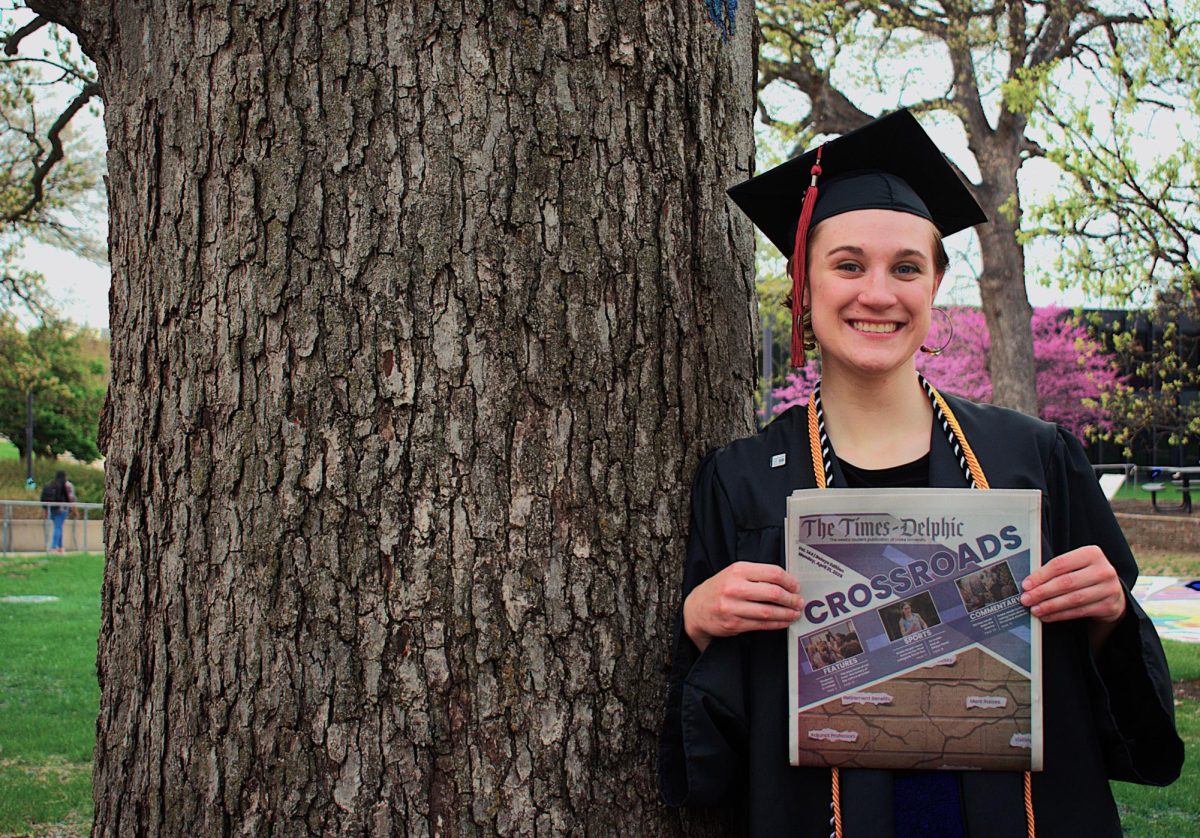“Mean Girls” (2024) was a confusing theatrical experience that had me leaving the theater wondering who it was for. In attempting to be palatable to a wider audience, the film alienated existing musical fans and had difficulty deciding what it wanted to be. While trying to be a film for everyone, “Mean Girls” became a film for no one.
This confusion was evident from the first trailer, released on Nov. 8, 2023. Instead of highlighting the fact that this film is an adaptation of the Broadway musical, the trailer is set to Olivia Rodrigo’s “get him back!” The only nods to the format of the film are a few split-second scenes of dances and a small musical note in the logo.
According to Marc Weinstock, Paramount’s president of global marketing and distribution, leaving the fact that the film is a musical out of trailers was intentional.
“To start off saying musical, musical, musical, you have the potential to turn off audiences,” Weinstock said in an interview with Variety. “I want everyone to be equally excited.”
Weinstock is correct that musicals don’t typically attract a wide audience. Over the past few months, I have seen many comments on social media along the lines of “It’s a musical? I’m not seeing it then.” However, movie musicals such as “The Greatest Showman” and “La La Land” have been able to find success with general audiences, and the latter even managed to earn multiple Oscars.
By trying to hide the musical aspect, Paramount reinforced Hollywood’s stance that musicals are embarrassing and unpopular. This industry-wide fear of musicals alienates fans and the talented artists who work on these productions. “Mean Girls” (2024) had the opportunity to oppose this belief and bring a Broadway musical into the mainstream but chose not to in pursuit of palatability.
Paramount attempted to straddle the line between musical fans and “Mean Girls” (2004) fans, but constant comparisons to the original film are what set this version up for failure.
These comparisons put pressure on the 2024 version to deliver an experience that lived up to the cultural phenomenon that was “Mean Girls” (2004). But considering the popularity of the original film, this was a mission doomed to fail. Marketing the film as a musical would have allowed “Mean Girls” (2024) to step out of the shadow of its predecessor and land with its existing audience: musical theater fans.
Additionally, fans of the original film may have been more open to “Mean Girls” (2024) if the studio had advertised that it was an adaptation of the Broadway musical. Many fans have been vocal about not wanting to see the film remade yet, and this distinction would have made it clear that it was not replacing the original.
The trailers made it clear this film was not for fans of the Broadway musical, and the film itself cemented that fact.
Winner of the 2018 National High School Musical Theatre Awards, or the Jimmys, and “Mean Girls” on Broadway alum Reneé Rapp was the ideal choice to reprise her role as Regina George. She provided a concrete connection to the Broadway musical and brought on board fans of her solo musical career. Auli’i Cravalho, who starred in Disney’s “Moana,” and Tony-Award-nominated Jacquel Spivey were also strong choices as Janis and Damian. However, it was abundantly clear which actors lacked musical theater backgrounds.
Christopher Briney, who gained popularity from his role in the Amazon Prime series “The Summer I Turned Pretty,” played Cady Heron’s crush, Aaron Samuels. Although he doesn’t have a huge role in the Broadway musical, the character of Aaron does sing in several songs, which help define his character and relationships with Cady and Regina. However, Briney’s version doesn’t even sing a bar. As Briney told Digital Spy, “I’m grateful that he didn’t have a number.” Although not essential to the story, Aaron’s lack of vocals caused Briney’s Aaron to come off as flat and uninvolved.
But by far the biggest casting misstep was Angourie Rice as the film’s lead, Cady. It is apparent that Rice is unable to sing Cady’s song as written, resulting in her parts being cut, given away to other characters or optioned out oddly.
By cutting down her part in the film, Cady became the secondary character in her own film. The trailers and the film hand the spotlight to Regina, making this version of Cady lifeless, passive and utterly forgettable.
Unfortunately, not even the talent and prominence of Rapp could save this mundane, disappointing film. The trailers were right about one thing: this film could never be “your mother’s Mean Girls.”








